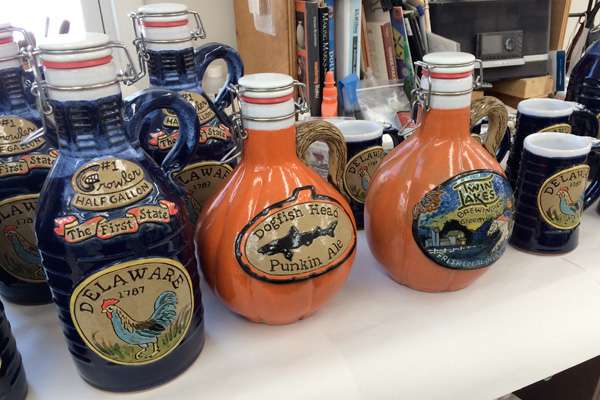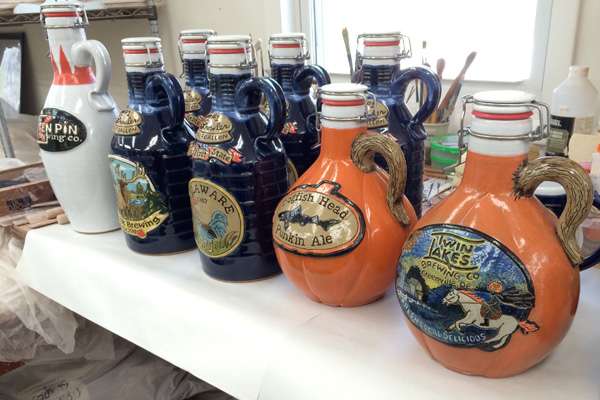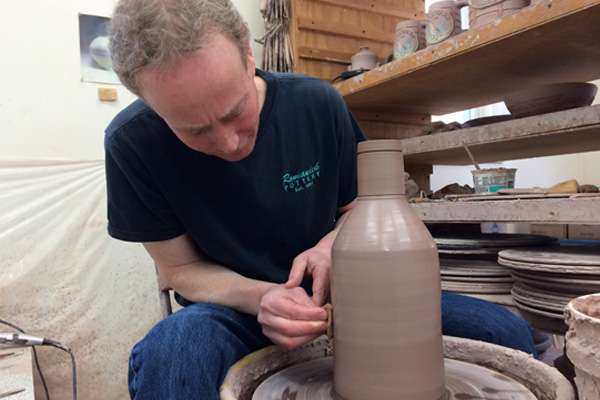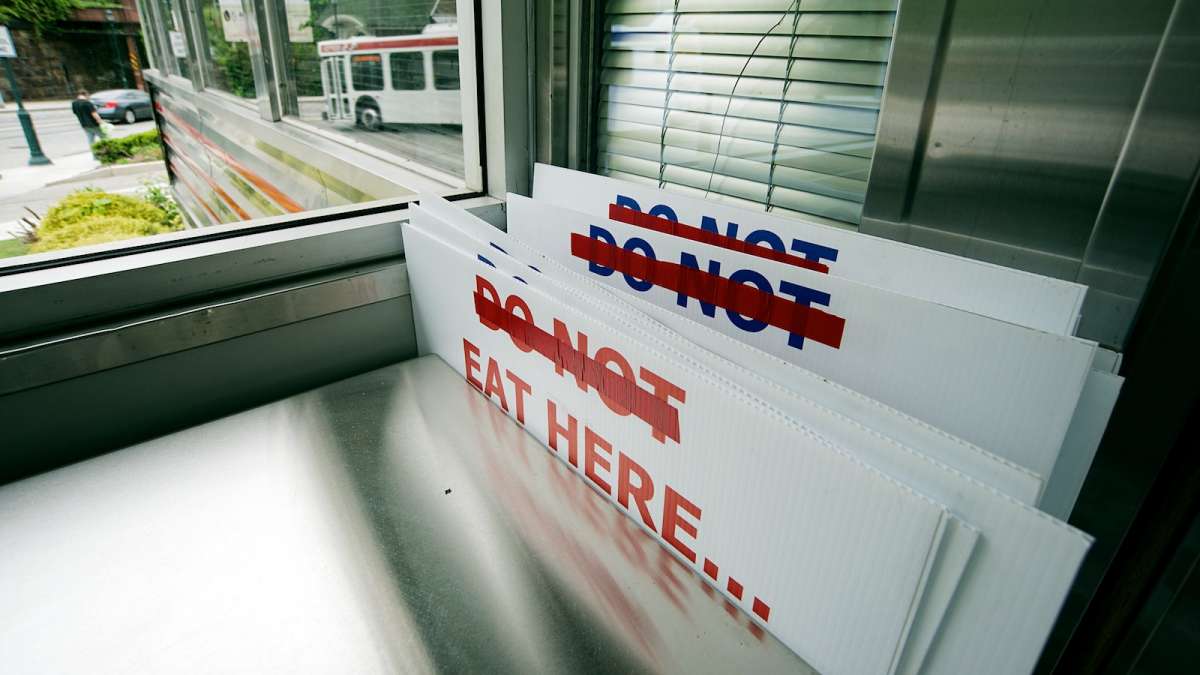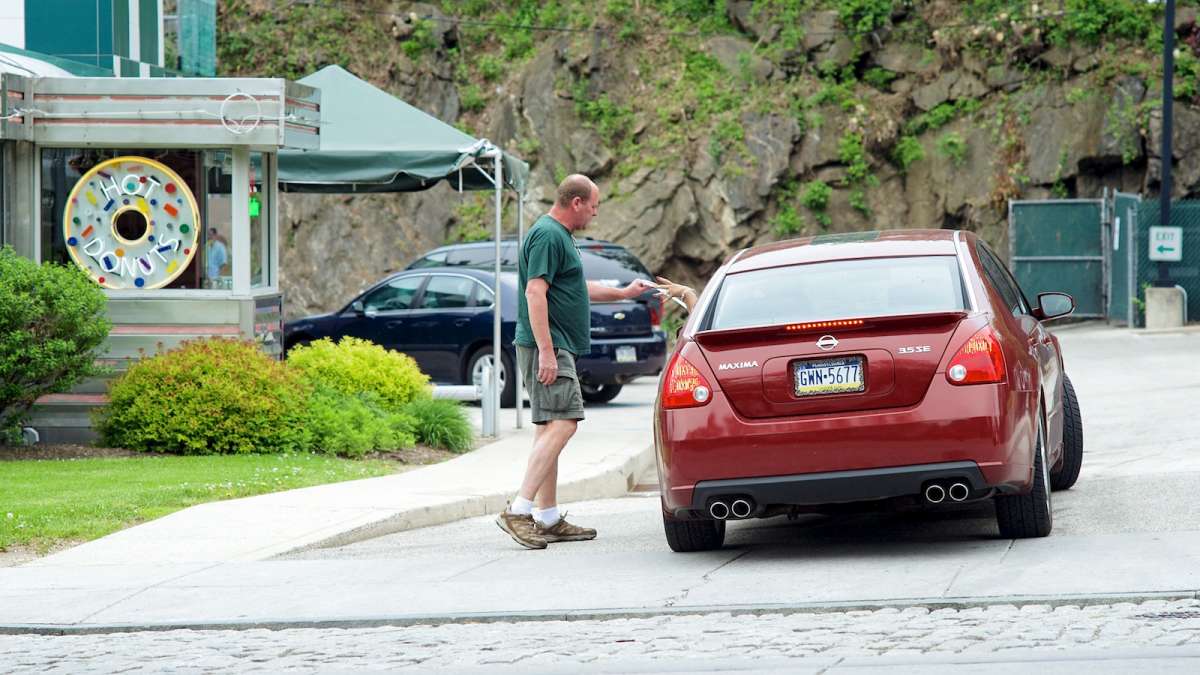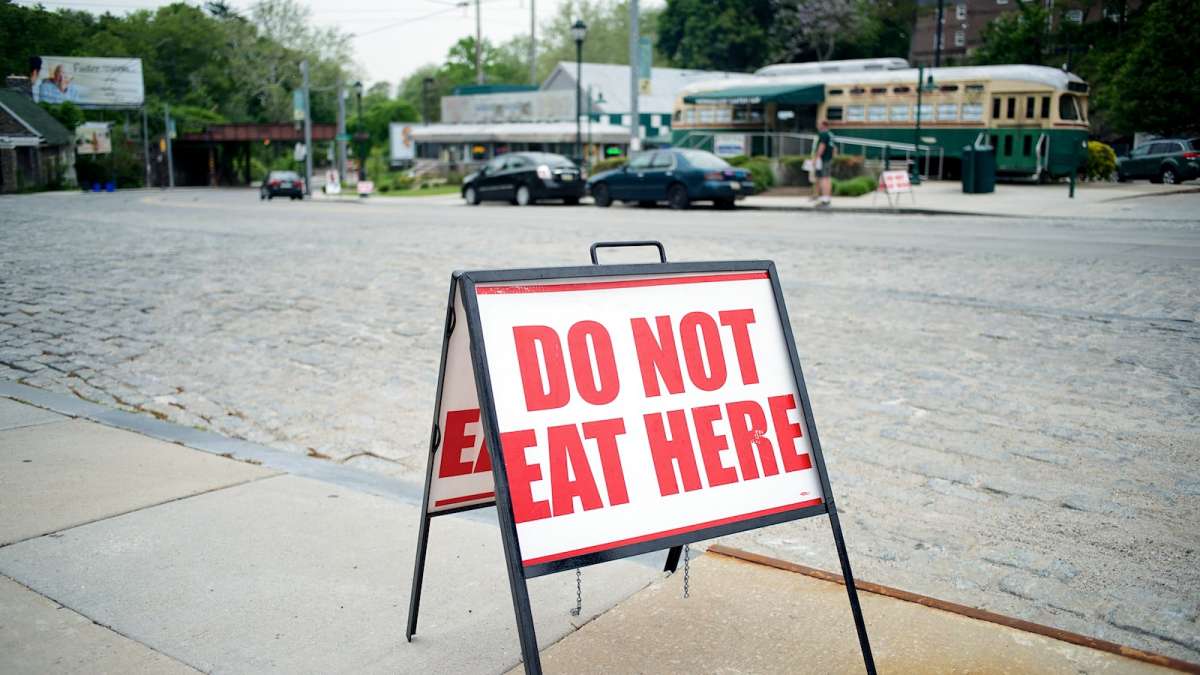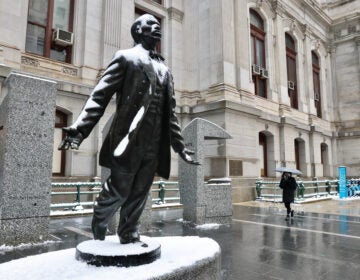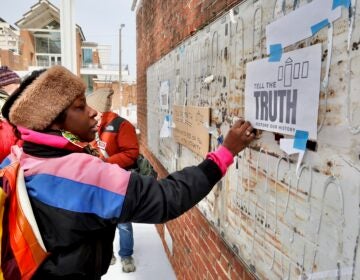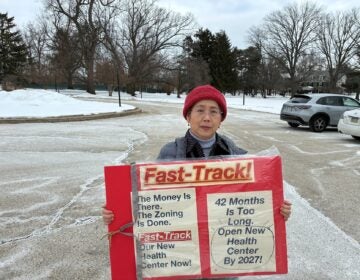Weinstein rails against Local 98’s ‘desperate … focus on Northwest Philly’
The recent focus on Philadelphia’s building-trades unions has primarily focused on battles at the Pennsylvania Convention Center and surrounding other Center City projects.
Confrontations have also spread in recent years to Northwest Philadelphia campuses, clubs and other sites. They have become an almost daily occurrence at one prominent business along Germantown Avenue.
An intensified ‘annoyance’
What began as occasional picketing at the Trolley Car Diner in Mount Airy by IBEW Local 98 members over the use of non-union labor at another project of diner owner Ken Weinstein has intensified into protests and what he deemed as harassment from Monday through Friday.
“They are picketing at breakfast, lunch and dinner at the diner and, on occasion, at the Trolley Car Café,” Weinstein said, referring to his East Falls eatery. “They have a way of stepping into the street and into our driveway and stopping cars in order to annoy our customers.”
When the picketing began in February, Weinstein’s loyal patrons increased their visits to show their support.
“But now, it’s just an annoyance,” he said, noting that the diner staff has been targeted with verbal abuse and offensive gestures. “My servers are very unhappy, and they have nothing to do with this.”
Weinstein said he has had to call the police nearly every day to keep the protesters from blocking customers’ cars.
“The police sometimes come and cite them for these disturbances,” he said. “The police leave, and the picketers go right back to what they were doing.”
Weinstein said the union protesters have also told drivers along Germantown Avenue that they suffered from food poisoning after eating at the diner.
“These picketers have never eaten at the diner in their lives,” he said. “When the truth doesn’t work for you, you resort to harassment and bullying.”
When asked for reaction, Frank Keel, spokesperson for Local 98, said, “Ken Weinstein’s myriad lies do not even warrant comment.”
No negotiations
When the protests began at the diner in the winter, Weinstein and his son tried to bring the picketers coffee and doughnuts.
One protester politely declined the offer, but others “turned to us and said, ‘We know where you live and we will visit you.’ It was a direct threat.”
Weinstein called the police and has a copy of the report that cites two individuals for threatening behavior.
Weinstein has avoided contact with the protesters since then and has made no attempt to negotiate with IBEW Local 98 business manager John Dougherty or his representatives.
“When people lie and treat you this way, you don’t want to work with them at all,” Weinstein said. “I would never hire a union electrician after watching how they act. Why would you ever hire a union electrician when they threaten you and your family?”
Conflict stems from Waldorf project
At the center of the dispute is the renovation of St. Peter’s Episcopal Church (Wayne Ave. and Harvey St. in Germantown), a grouping of historic buildings designed by preeminent architects Frank Furness and George Hewitt.
Weinstein’s firm, Philly Office Retail, purchased the property in early 2013 for $435,000, in order to transform it into the new campus for the Waldorf School.
Weinstein hired the firm of McCoubrey/Overholser as general contractor to oversee the estimated $6 million renovation of the buildings.
McCoubrey sought bids for the electrical work and received three offers, including a union contractor whose bid was “30 to 40 percent higher” than the others, Weinstein said.
“In our line of work, you don’t always take the lowest bid, but assuming all the bids are coming from quality contractors, you certainly wouldn’t take the bid from someone who is 40 percent higher,” he said.
The union protesters have never showed up at the St. Peter’s construction site, “which I find amazing, since that’s what they’re protesting,” Weinstein said. “They are intentionally deceiving people who are driving by the diner into thinking we have unfair labor practices at the diner.”
The transformation of the church into the school is expected to be completed by June 1, 2015.
The protests at the diner, meanwhile, have been going on for more than three months, and “there is no end in sight,” Weinstein said.
Other Northwest Philly targets
Since the Trolley Car Diner has become a union flash point, Weinstein said he has become a “magnet” for stories from other developers and investors over union confrontations.
However, most are unwilling to discuss their problems publicly.
“It’s hard to get people to come out and be public about this,” he said. “I feel like I’m speaking out for all the other developers and investors who have faced these problems.”
Some of the problems are already a matter of public record.
One of the most notorious occurred in Dec. 2012, when the non-union construction site of the Chestnut Hill Friends Meetinghouse was the target of arson and sabotage unrelated to Local 98.
Just before Christmas that year, vandals torched the construction crane, shaved off bolts and cut beams that could have resulted in the collapse of the structure’s steel columns and caused an estimated half-million dollars in damage and delayed work by weeks.
In February, federal prosecutors announced a racketeering conspiracy case against 10 leaders of Ironworkers Local 401, alleging violent attacks against contractors, including the Chestnut Hill arson.
In March 2005, IBEW Local 98 was the subject of a complaint filed with the National Labor Relations Board by the Springside Chestnut Hill Academy for “confrontational conduct” on the campus.
U.S. District Court documents state that the union engaged in “massing of demonstrators, amplification of loud music and aggressive handbilling” to force the school from doing business with a particular contractor. The case ended with a settlement between the parties and a cease-and-desist order for the union to end the protests issued by the court.
Local 98 also demonstrated outside the gate of the West Willow Grove campus of the Philadelphia Cricket Club and its other locations from spring to fall 2013 to protest the use of non-union labor for an electrical project, said Tim Muessle, general manager and chief operating officer.
The protesters inflated a giant rat outside the gate, but “people didn’t pay much attention,” Muessle said.
“There wasn’t much to be done about it. The union bids we received were double the winning bid, so it really was not even feasible to try to negotiate,” he said. “Because of the trouble at the Quaker meetinghouse [in 2012], we upped security. Otherwise, there were a couple more people at the gate each day to say good morning to.”
Lost business and desperation?
Weinstein said he has heard from other Northwest Philadelphia institutions that have been harassed by union protesters.
“There is clearly a focus on Northwest Philly” by the unions, Weinstein said, and not necessarily because of an increase in construction work in that section of the city. “I believe the reason is that the building trades unions are getting more desperate.
“They’re losing business in Center City because developers and investors are getting smarter and are no longer willing to pay the non-competitive rates the unions are charging. Because they’re less competitive than ever, [the unions] need to go to new areas, and that’s why they’ve latched onto Northwest Philly.”
Weinstein said he is exploring legal tactics to stop the protests against his business on Germantown Avenue.
“They’re now bad-mouthing the diner, which they’re not allowed to do. The protest is against the development project,” he said. “I think IBEW has a very serious public-relations problem, and by being out there at the diner every day they’re making it worse.
“They think that these protests will encourage developers to hire them. I think just the opposite will happen.”
WHYY is your source for fact-based, in-depth journalism and information. As a nonprofit organization, we rely on financial support from readers like you. Please give today.








